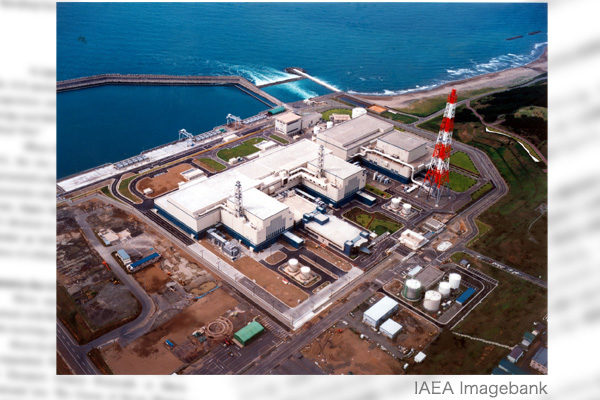I participated in a symposium of the Information System on Occupational Exposure (ISOE) in Fort Lauderdale, Florida, from January 30 through February 2. ISOE is a forum seeking to share information about accidents and troubles at more than 430 nuclear reactors worldwide and to reduce occupational radiation exposure of nuclear plant workers as much as possible. It is jointly run by the International Atomic Energy Agency and the OECD (Organization for Economic Cooperation and Development) Nuclear Energy Agency.
Recommending online maintenance
In my presentation at the symposium, I pointed out that the Japanese Nuclear Regulation Authority’s screening of nuclear reactors for their restart has been considerably delayed despite Prime Minister Fumio Kishida’s declaration to make maximum use of nuclear power generation and that Japan’s nuclear regulations should be reformed. I also explained that the introduction of air purifying systems would be effective for preventing occupational exposure accompanying nuclear power plant maintenance and that the utilization of nuclear energy would serve three ends of Japan’s decarbonization, stable electricity supply and economic growth, drawing applause from participants.
In fact, occupational exposure of nuclear plant workers during plant maintenance to secure reliability and safety has dramatically reduced thanks to the activities of the ISOE except in Japan. As nuclear plant maintenance in Japan centers on overhaul, maintenance workers are vulnerable to exposure. In contrast, most foreign countries have adopted online maintenance in which workers perform maintenance during plant operations. Maintenance workers constantly monitor electricity consumption and torque of motors for electrically operated valves and pumps to find out any instrument anomalies and use valves to separate one system from others for online maintenance.
Japan has introduced the reactor oversight process (ROP) of the U.S. Nuclear Regulatory Commission to supervise plant maintenance. However, massive overhauling operations for regular plant checkups are inefficient, only increasing workers’ exposure to radiation. Online maintenance can check conditions of bearings and other components vulnerable to attrition and indicate their optimum replacement timings. Online maintenance results can be shared by all maintenance participants to avoid operational errors or failures. Performance gaps have been widening between Japan centering on overhauling during regular checkups and Western countries adopting online maintenance.
Solar photovoltaics contributing little to cutting CO2 emissions
In my presentation, I used global power generation and CO2 emission data to explain that the CO2 emission coefficient (CO2 emissions per kilowatt-hour during power generation) indicated solar photovoltaics contributing little to cutting CO2 emissions, that wind power generation cannot achieve a CO2 emission reduction target and that hydro and nuclear power generation alone can effectively reduce the emission coefficient.
I also pointed out that Germany’s nuclear phaseout policy increased its dependence on Russian natural gas, leading to European natural gas price spikes due to Western sanctions against Russian invasion of Ukraine and Russia’s retaliation, and that major Japanese newspapers had foolishly praised such German energy policy.
Tadashi Narabayashi is a specially appointed professor at the Tokyo Institute of Technology and a director at the Japan Institute for National Fundamentals.


